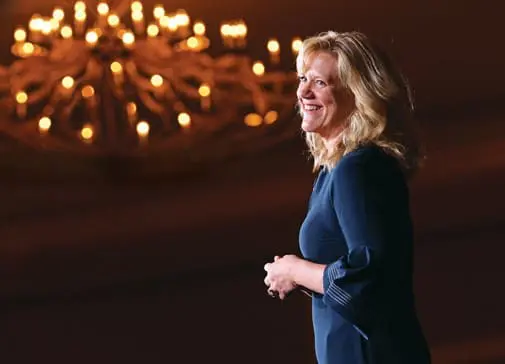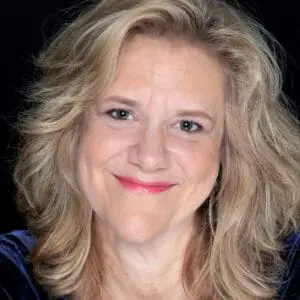He walked into my office in a dress and high heels. He was six-foot-five and towered over me. He wore yellow plastic earrings and a bad wig. On the phone, he’d asked if he could change in the bathroom before we met, explaining that he wanted to talk about his interest in dressing like a woman and needed a safe place to test the waters.
I’m a sex therapist. I see people every day who have what others would consider “edgy” issues: crossdressers, people with fetishes, couples in open relationships, people who engage in polyamory, S&M, kink. I see them all, and I’m okay with all of it. I don’t judge. After all, I grew up with people who most of the world would deem freaks. The “freaks” were my friends. They were my family.
I grew up in the circus. Not a metaphorical circus, a real one. My father worked for Clyde Beatty Cole Brothers. He was the barker and a pitchman and an emcee and a ringmaster. We lived like gypsies for most of my childhood, traveling with the circus to follow him around. I’d lived in 12 different houses by the time I was 10. The bearded lady lived in our driveway in a trailer. The clowns babysat me. As a child, it all seemed fun and exciting. And I adored my father. The problem was he never paid any attention to me—at all.
What he did do was make promises: the biggest, the most important of which was that one day, out of all the little girls in the audience, he’d choose me—me!—to be the special one who got to step into the center ring and ride the elephant.
So night after night, under the big top, I’d wait for that part of the show, for my father, with one hand on the microphone, to shout, “Who’s it gonna be, folks? Who’ll be the lucky girl to come on down and ride the elephant tonight?” With his other hand he’d point into the stands, where I’d jump up and down, waving and shouting, trying everything I could to get his attention.
And he’d never pick me. Some other little girl always got chosen.
Eventually, my mother left him, and we left the circus to try to live a “normal” life. I tried to make friends at school, but I always felt like an outsider: different, but not enough to be special. And I carried that feeling long into adulthood, like I was forever waving my arms to be picked—for recognition, for relationships, for some kind of attention. I won’t even go into my history with men and what I’ve done throughout my life to get noticed. (Keep in mind, I’m a sex therapist.) My mother once told me, “Every problem I ever had was because of sex.” I was six years old. Now, I tell people that sex isn’t the problem, it’s the solution.
So I wanted to help my crossdressing client, because, in a way, he was like me, and I felt comfortable with him. There was a sadness about him, an outsider feeling. He talked about his longing to find a place where he’d be accepted, where he could be himself. And I knew that place could be my office, at least for a start. So I began to build a rapport, first by telling him about how he could improve his taste in fashion and then about the importance of a good wig. He said he’d been to many therapists before me and appreciated finding someone who’d tell him the truth about his clothes. I felt like we had a bond.
But then I got a call from Bucharest, Romania, where I was invited to do a TED talk. The topic was “crossing boundaries,” and even though my work was a perfect fit with the topic, I was scared, nervous beyond belief. When I got there after a long flight, I went through a ton of rehearsals in a big, beautiful theater with two levels of red velvet amphitheater seats. Men in black T-shirts were talking into mics on their shoulders; producers were telling me where to stand, where to look. In the green room, I met the other speakers who’d be on the stage that night, and they were the smartest people I’d ever met: a magician who’d hacked the BBC, a woman who’d changed water into fuel for hospitals in developing countries, a 17-year-old astronaut who said she was in training to go to Mars.
When the time came to do my talk, I was backstage shaking. I’d spoken in front of large audiences before, but this was a TED talk! It was big-time. Then I heard them introduce me and the music start to play. With the lights blaring in my eyes, I strode out onto that beautiful stage with the round, red TED carpet in the middle and hit my mark in the spotlight. That’s when I felt it—I’d finally made it to the center ring. I’d been chosen.
As I stood there talking about the trouble with relationships and how to heal them, the audience laughed and clapped in all the right places. I might as well have been on top of the largest elephant in the world. And the best part was that I’d gotten here on my own. I realized I didn’t need my father, or any man, to get into that ring. I didn’t need anyone to parade me around. I’d earned that spot. It was mine. I deserved every second of that moment.
When I got home from Bucharest, I felt like I’d peeled off layers of myself from the past. The old longings and desires were no longer necessary. Perhaps it was just the experience of checking off a bucket-list dream, but I felt I no longer needed anyone to affirm for me who I was or what I was good at. I felt something important had changed for me.
And then my crossdressing client fired me. He left a message to say he’d chosen a different therapist. For a moment, I was devastated. Didn’t he realize that I was the perfect therapist for him? I’d been so brilliant in our initial session; we’d even shared shoe preferences! Didn’t he realize that I was someone who really knew how to help him feel comfortable? Why didn’t he pick me?
Then, in my new, more confident state of mind, I thought about my father and how I’d done everything I could to get him to pick me. The reason he didn’t wasn’t because of anything I did or didn’t do. It had nothing to do with me not being good enough. It was about him, not me—just like my client’s choice to see a different therapist.
Maybe Bucharest isn’t exactly the center of the world, but in my moment up there in the spotlight on that TED stage, I felt that some lifelong wound had been healed. I no longer needed to try to grasp for something that would always be beyond my reach. I didn’t have to try to please everyone to prove I was worthy. For what seemed like the first time in my life, I finally knew, deep inside, that I was okay just being me, regardless of whatever circus was taking place around me.
I hope one day my crossdressing client will find a place where he can feel this, too. In the meantime, at the very least, I hope his new therapist will teach him the importance of a good pair of shoes.
Tammy Nelson
Tammy Nelson, PhD, is an internationally acclaimed psychotherapist, Board Certified Sexologist, Certified Sex Therapist and Certified Imago Relationship Therapist. She has been a therapist for 35 years and is the executive director of the Integrative Sex Therapy Institute. She started the institute to develop courses for psychotherapists as the need grew for certified, integrated postgraduate sex and couple’s therapists in a growing field of mental health consumers who need more complex interventions for their relationship needs. On her podcast The Trouble with Sex, she talks with experts about hot topics and answers her listeners’ most forbidden questions about relationships. Dr. Tammy is a TEDx speaker, Psychotherapy Networker Symposium speaker and the author of several books, including Open Monogamy: A Guide to Co-Creating Your Ideal Relationship Agreement (Sounds True, 2022), Getting the Sex You Want: Shed Your Inhibitions and Reach New Heights of Passion Together (Quiver, 2008), the best-selling The New Monogamy: Redefining Your Relationship After Infidelity (New Harbinger, 2013), When You’re the One Who Cheats: Ten Things You Need to Know (RL Publishing Corp., 2019), and Integrative Sex and Couples Therapy (PESI, 2020). Learn more about her at www.drtammynelson.com.













